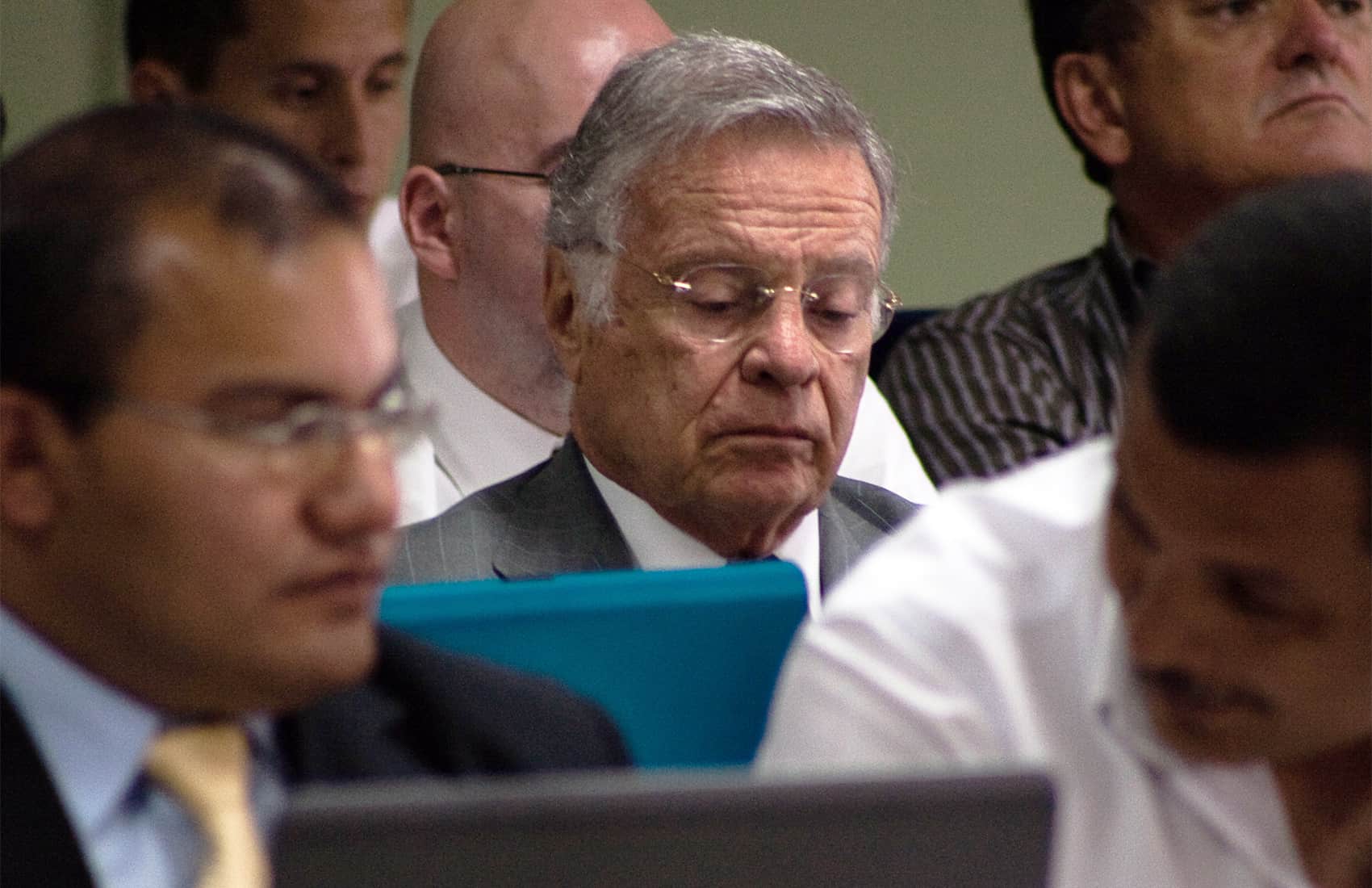The trial against former President Miguel Ángel Rodríguez Echeverría restarted today in the Tribunal Penal de Hacienda y de la Función Pública, marking the latest chapter in a corruption probe that has dragged on since 2001. Rodríguez, who led Costa Rica from 1998 to 2002, faces charges of peculado alongside several ex-officials for allegedly accepting payments from British reinsurance firms to lock in contracts with the Instituto Nacional de Seguros (INS).
Prosecutors claim the group pocketed around $2.1 million from companies like PWS, Guy Carpenter, and Willis Re. These funds supposedly helped secure reinsurance deals for INS assets, including those tied to the Instituto Costarricense de Electricidad (ICE). The case has seen repeated setbacks, with dismissals overturned and hearings postponed multiple times.
Last week, the court handled preliminary matters, including separating three defendants due to health issues or death. Cristóbal Zawadzki Wojtasiak, former INS executive president, was excused on medical grounds, while his late wife Gilda Montes de Oca and Roxana Cordero Bogantes were also removed from the main proceedings.
That left Rodríguez and four others—Álvaro Antonio Acuña Prado, Ramón Lara Molinari, Rónald Bonilla Rodríguez, and Antonio Corrales Moya—to face the bench today. The session kicked off with formal readings and procedural checks, setting the stage for witness testimonies and evidence reviews in the coming weeks.
Rodríguez, now 85 and tending to his ailing wife, showed up in court looking composed but frustrated. He told reporters outside the Goicoechea tribunals that the delays have violated his right to swift justice.
“More than three years after the Constitutional Court said my rights were broken, and almost three years after this same tribunal called the process defective, here I am,” he said. “A total defect can’t be fixed—how can they judge me on a flawed case? It’s ridiculous, but I respect the court and face it head-on.”
His lawyer, Christian Arguedas, echoed that sentiment, vowing to push for a full acquittal. “We’ll prove Don Miguel Ángel had zero involvement,” Arguedas said. “He’s fought for the rule of law for over 20 years, and we’ll keep debating this on the merits, respectfully and openly.” Arguedas pointed to past rulings, like a 2014 dismissal in Rodríguez’s favor that an appeals court later reversed, as proof of ongoing procedural flaws.
The reinsurance scandal first surfaced in 2001, amid broader corruption probes into Rodríguez’s administration. It stems from claims that UK firms funneled money through intermediaries to influence INS decisions. In the UK, a related case wrapped up in 2010 when PWS executive Julian Messent admitted to authorizing $1.8 million in “corrupt payments” to Costa Rican officials between 1999 and 2002.
This isn’t Rodríguez’s first brush with the courts. He resigned as Organization of American States secretary-general in 2004 to return home and fight separate charges in the ICE-Alcatel bribery case. There, he received a five-year sentence in 2011, only for appeals courts to acquit him twice by 2015, citing faulty evidence from key witness José Antonio Lobo. Rodríguez has always denied wrongdoing in both matters, calling them politically motivated.
Peculado(Corruption) carries a prison term of three to 12 years if proven. Prosecutors argue the payments amounted to misuse of public resources, while the defense insists no solid links tie Rodríguez to the deals. The trial could stretch into late 2025, given the case’s history of appeals and the volume of evidence—thousands of pages spanning decades.






